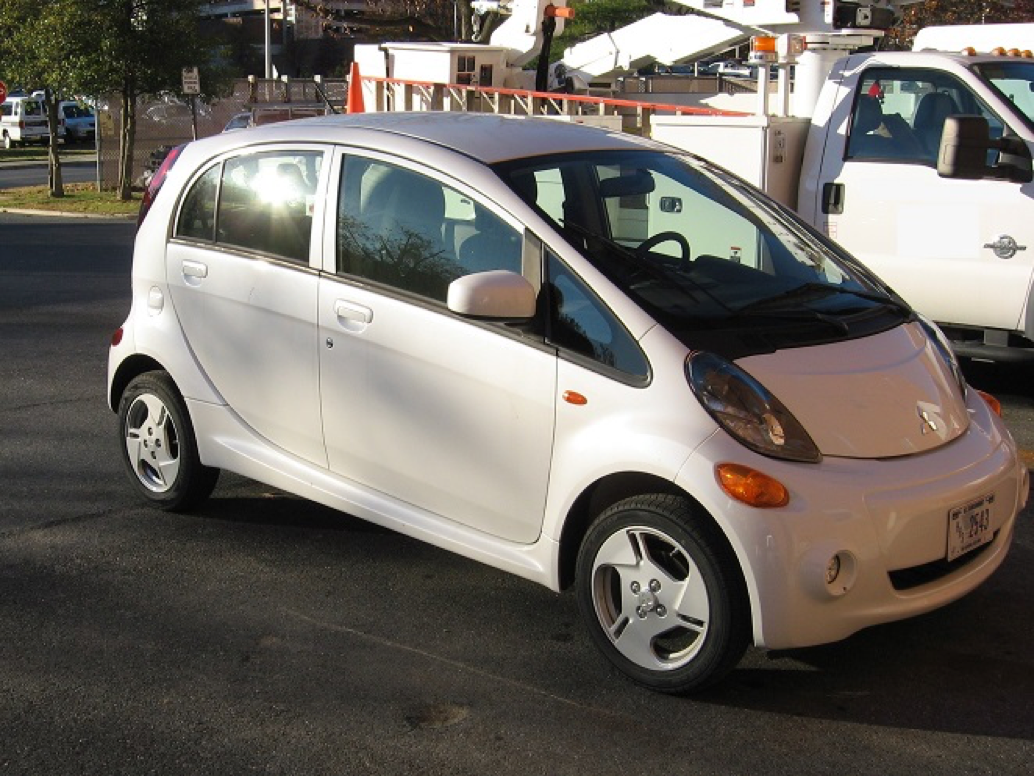The
NIH fleet management program utilizes telematic data to implement fleet
rightsizing and trip planning and acquires fuel efficient vehicles to
reduce fuel consumption, reduce costs, and meet regulatory requirements. The
NIH conducts fleet rightsizing evaluations that factor in vehicle usage
and requirements to reduce the number of underutilized vehicles. The NIH uses
telematic systems to reduce both the length and number of trips in order
to reduce the total miles driven minimize fuel consumption. The NIH
purchases fuel efficient vehicles to reduce fuel and meet legislative requirements.

Figure 1. Mitsubishi innovative Electric Vehicle (MiEV)
Fleet Optimization and Fuel Reduction Strategies:
- Collect and utilize NIH fleet operational data through deployment of vehicle telematics.
- Ensure that NIH annual asset-level fleet data is properly and accurately accounted for in a formal Fleet Management Information System as well as submitted to the Federal Automotive Statistical Tool reporting database, the Federal Motor Vehicle Registration System, and the Fleet Sustainability Dashboard (FLEETDASH) system.
- Optimize and right-size fleet composition, by reducing vehicle size, eliminating underutilized vehicles, and acquiring and locating vehicles to match local fuel infrastructure.
- Use a FMIS to track real-time fuel consumption throughout the year for NIH-owned, GSA-leased, and commercially-leased vehicles.
- Implement vehicle idle mitigation technologies.
- Where State vehicle or fleet technology or fueling infrastructure policies are in place, meet minimum requirements.
- Establish policy/plan to reduce miles traveled, e.g. through vehicle sharing, improving routing with telematics, eliminating trips, improving scheduling, and using shuttles, etc.
Regulations:
42 U.S.C. § 6374e(a) not later than October 1, 2015, and for each year thereafter, each Federal agency shall achieve at least a 20 percent reduction in annual petroleum consumption as calculated from the baseline established by the Secretary for fiscal year 2005.
42 U.S.C. § 6374e(b) says that through their petroleum reduction plan, agencies can employ strategies such as using alternative fuels, acquiring high fuel-economy vehicles.
42 U.S.C. § 13212(f)(2) says that Federal agency should not acquire a light-duty vehicle or a medium-duty passenger vehicle that is not a low greenhouse gas (GHG) emitting vehicle.
Related Links: